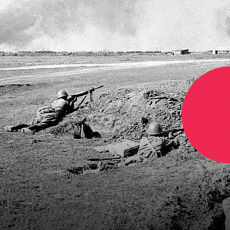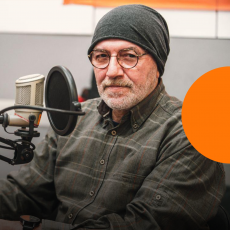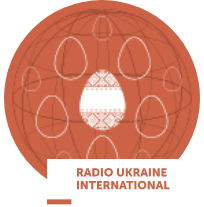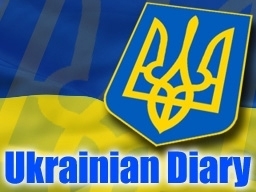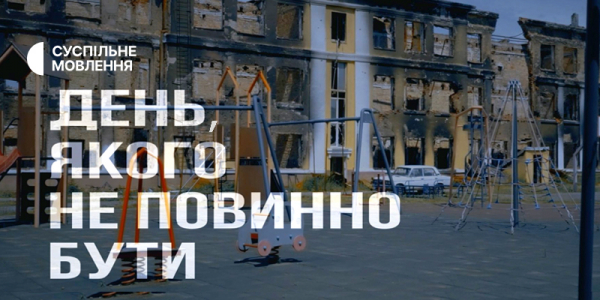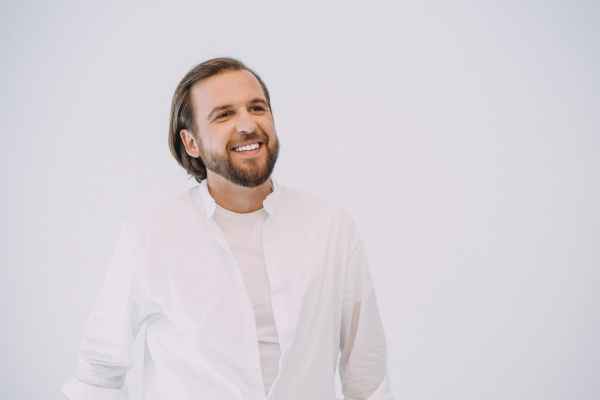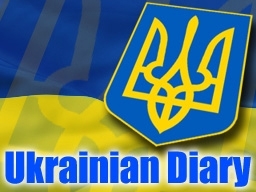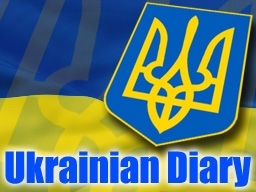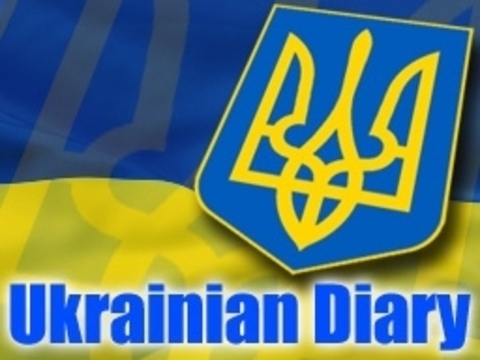1. The situation remains tense in the war-torn areas of Donetsk and Luhansk regions in Eastern Ukraine. Russia-backed forces continue violating the Minsk agreements using heavy weapons and causing Casualties among Ukrainian servicemen. Over the part week the number of enemy strikes gradually increased, according to reports by the Operation Headquarters press center. The enemy fire has been the most intense in the areas south and southwest of Luhansk, north and west of Donetsk and northeast of Mariupol. By the middle of the week the area north of Donetsk in particular has seen an upsurge of military action.
OSCE SMM has also recorded an increase in military activity in the conflict zone. On Friday, Principal Deputy Chief Monitor of the OSCE SMM has briefed reporters via Skype from the Donbas region. “There is an established correlation between violence and especially upsurges in violence, and the failure to withdraw weapons and disengage. In addition to the presence of the proscribed heavy weapons and the proximity of armed forces and formations it is clear that violence continues because those committing it are allowed to do so. They are not held to account. (…) Compliance with the Minsk agreements is the responsibility of the sides. The sides must ensure what they have agreed is carried out. They must comply, they must breach the gap between commitment and reality. Making Minsk reality, making the ceasefire reality requires accountability.”
Alexander Hug also spoke about threats the SMM monitoring officers have been facing from the side of the militants namely in the self-proclaimed DPR. The mission’s UAVs have also been targeted, which was qualified as deliberate attempts to prevent the mission carrying out its mandate.
Peace-talks regarding the conflict in Eastern Ukraine are of major importance at this year’s Munich Security Conference that has kicked off on Friday. Ukrainian Foreign Minister Pavlo Klimkin commented on conflict resolution in Munich on Friday, saying that two projects were underway to bring peace to Donbas, the American project and the Normandy format. He added that it was less important who would be at the negotiating table, stressing that concrete results of those negotiations were paramount.
2. Feb.12th marked three years of the ‘Minsk-II’ agreements. The first version of the Minsk Agreements was signed on Sept. 5, 2014, at the peak of the armed conflict between Ukraine and the unrecognized rebel republics in its Donbass region, calling on the sides to stop the clashes. But it failed to guarantee real progress in resolving the conflict. The Minsk-II Agreements, signed by Russia, Ukraine, and representatives of the self –proclaimed DNR and LPR on Feb. 12, 2015 once again called for an immediate ceasefire and withdrawal of heavy weaponry, which would pave the way for political regulation. Ukraine was expected to carry out constitutional reforms that would strengthen the special status of Donetsk and Lugansk. Afterwards the republics were to hold elections and Ukraine would establish control over its border with Russia. According to Ukrainian experts, the progress on Minsk II – the key agreement that was supposed to put an end to the war in Donbass – has so far been minimal. While the original text of the accord stipulated an “immediate and full ceasefire” in the Donetsk and Luhansk regions of Ukraine starting from 15 February 2015, skirmishes and occasional heavy artillery exchanges are still taking place. In 2017, there have been at least six attempts to negotiate a truce linked to a specific time of the year. The beginning of the harvest season or the school year were used to time such attempts. Each of those ceasefires, however, could not hold more than several hours. Truce initiatives are often negotiated at a high level, as was the case in February during the Russian, Ukrainian, French and German foreign ministers’ meeting at the Munich Security
Conference. However, political support does not translate into an improvement for the security situation on the ground. One of the main reasons is that the independent monitoring of the ceasefire violations is still far from perfect. The OSCE Special Monitoring Mission (SMM) observers do not have direct access to
many areas under rebel control. What’s more important, Russia keeps supporting separatists in Donbas and fuelling the conflict. The Minsk II was an attempt for Vladimir Putin to expand his influence on the situation in Ukraine, believes Ukrainian expert Olexandr Hara. “It’s absolutely clear that Russia wants more than to control that part of Donbas, it wants to stretch its power over the whole Ukraine. Striving for peace on behalf of Ukraine is an attempt to stop the aggression on its own territory. The Minsk agreements cannot be fulfilled until we turn to the essence of the conflict. The conflict in Donbas is only part of the problem. This aggression started with the annexation of Crimea and later it had spread over to Donbas. This problem should be solved as a whole”, he said.
Russiadid not fulfill any of the points of the Minsk Agreement in three years, and it needs the destabilization of Ukraine, as the spokesperson of the Ukrainian Foreign Ministry said on Tuesday. This is how Ukrainian diplomats responded to an earlier statement by Russian Foreign Minister Sergei Lavrov, who claimed that the adoption of the Donbas reintegration law in Ukraine would be a move “toward scrapping the Minsk agreements”.
The Normandy Four (Ukraine, Germany, France and Russia) signed the ‘Minsk-II’ agreement at the leaders’ level on February 12, 2015. The agreements also provided for ceasefire, disengagement of forces and heavy weaponry observed by the OSCE.
3. On Monday, former Georgian president and oppositional political leader in Ukraine Mikheil Saakashvili has been detained by the special forces in a Kyiv restaurant, and sent to Poland. Having been stripped of Ukrainian citizenship by president Poroshenko in July which he had been granted in 2015 following the invitation to govern the Odessa region, Mikheil Saakashvili has gained popular support through campaigning overtly against the president in office. In September 2017, Saakashvili had arrived to Ukraine eluding border crossing procedures with the help of his supporters, who were mobilized at the the Polish-Ukrainian border.
Having returned to Poland, Saakashvili had made several statements, saying his detention was illegal and that he would fight till the end to save Ukraine from corruption.
UkrainianStateborder service official Oleh Slobodian had commented on the formal reason for Saakashvili’s banishment:
“This citizen’s stay in Ukrainian territory was illegal. Thus, observing all legal formalities,he was returned to the country from which he had illegally arrived. There hasn’t been any violations of procedure. The representatives of State Border Service had been attacked by people from his entourage after presenting him the ban to cross the border in the first place. Accordingly, the Service had to use force to not let this happen again.”
On his return back in September, in the backdrop of anti-Poroshenko protests, Saakashvili had initiated a series of court cases against the state. While the Ukrainian authorities accused Saakashvili of abetting a criminal group led by former president Victor Yanukovych, and claimed the protests under Saakashvili’s name were part of a Russian plot against the current government.
Prosecutor General’s office commented on the events on Tuesday, saying Saakashvili was about to testify in court in the case of Maidan shooting, and that his banishment impeded the investigation. This was said by head of special investigations department Serhiy Horbatiuk.
Saakashvili’s lawyer Ruslan Chornolutsky told the media a complaint had been filed to the European Court of Human Rights concerning the procedure of the politician’s readmission to the EU, reported Unian News Agency. The ombudsperson of Ukraine Valeria Lutkovska had said an investigation was underway on whether the rights of the stateless politician had been breached during his expulsion from Ukraine. In a restrained reaction, the EU commented in a statement by the press service of its Delegation to Ukraine that it would continue to monitor the updates on the matter. Saakashvili himself arrived in the Netherlands, his wife's home country,on Wednesday the 14th. Later he wrote on his Facebook page about receiving an ID card upon his arrival to Amsterdam that allows to live and work in the EU. And yet he said he was “decisively intent” on restoring his Ukrainian citizenship.
4. The well-known Berlinale film festival kicked off in Germany on the 15th of February. Within 10 days, almost 400 films from around the world will be shown there. The main program includes 24 films, 19 of them will compete for the main awards of the festival - golden and silver bears. These are films from the USA, France, Germany, Italy, the Philippines, Bulgaria and the movie from Russia about the writer Sergey Dovlatov. Ukraine will present the film "When the Trees Fall" directed by Marysia Nikitiuk. For the writer and director Marysia Nikitiuk her movie "When the Trees Fall" will become a full-length debut in cinematography. It will be presented on the 20thof February.
The film has been included to one of the main sections of the festival, Panorama Berlinale which was founded as a platform for courageous films that "expand the boundaries of meaning and visual aesthetics." Previously, Kira Muratova's films "Secondary People" and "The Letter to America" were shown in this section as well.
Director Marysia Nikitiuk told reporters about her film: “This is a drama, there are tragic and comic elements, this is independent cinema. We define it as a drama of adulting, there is a transition from a teenager to a grown-up in the movie’s focus. It is about internal freedom, desire to follow your inner call. It goes along with my inner experience, it was difficult for me to enter the cinematography because I do not have a professional background. But when you really want something, you have to make mistakes and go ahead,” - said Marysia Nikitiuk.
"When the Trees Fall" was produced jointly with Poland and Macedonia. In autumn, the film is scheduled for release in Ukraine. In May 2016, the script for the movie received the best scenario award for Central and Eastern Europe at the Cannes Film Festival.
